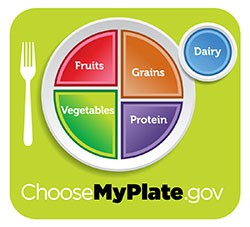What is Metabolism? | Tips for Managing Weight
What is Metabolism?
|
The full definition of metabolism is quite lengthy and scientific. In terms of weight management and/or weight loss, metabolism is the way the human body burns calories from the food that is consumed and converts it into the energy the body requires to function properly. It's a complex process that includes all of the chemical reactions taking place in the body to keep vital organs functioning. Metabolic RateMetabolic rate is the speed at which your body burns calories. Many factors affect metabolic rate including height, weight, age, sex, lifestyle, genetics, and overall composition of the body. Metabolic rate is significant when managing weight. The faster our metabolism, the more calories we burn, and the less likely it is that we will become overweight. Basal Metabolic Rate (BMR)Basal Metabolic Rate (BMR) is the amount of energy your body uses while at rest. This means that while you are sitting in a chair, or even sleeping, you are still burning calories. The BMR is responsible for approximately 60% of all calories (energy) used in the body. Physical activity accounts for approximately 30%. The "thermic effect of food," which is a term that refers to the energy (calories) required to digest and process the food that is eaten, accounts for the remaining 10%. |
Tips for Managing Weight
|
With your own metabolism as your guide, the following Do Not Skip BreakfastSkipping meals to eliminate calories? It seems like a simple concept; however, the repercussions of skipping a meal far out weigh the advantages of eliminating those calories. Skipping breakfast leads to intense hunger, making it difficult to make wise food choices. The result? Bad habits develop, such as eating convenient high-calorie snacks and meals. Eating breakfast jumpstarts your metabolism; so, you start burning calories earlier in the day. If you skip breakfast (or any meal), you are denying your body the calories it needs to function properly. The body is thrown into a "survival mode," which slows the metabolism, resulting in the storage of remaining energy as fat. Research also shows that skipping breakfast lowers mental performance in both youth and adults. Eat Throughout the DayEating 4-6 smaller meals throughout the day, rather than 3 large meals, will prevent your metabolism from shutting down. The longer you go between meals the more your metabolism will slow down in order to conserve energy. Drink WaterWater is the body's most important nutrient. If the body is lacking in water, the metabolic rate will be slowed. The liver will begin to retain water rather than burn fat. Replace Fat with MuscleMuscle burns more calories than fat. We are able to maintain our weight more easily if we replace fat with muscle. Exercise using light weights to tone and firm muscle. Aerobic ExerciseWhether you walk, skip, jog, or dance, aerobic exercise burns calories. Although cleaning your house and walking the aisles of the grocery store counts, sustained activity that raises your heart rate will burn the most calories. Progressive ExerciseAn exercise program must be progressive in order to be productive. Providing a challenge for your body is what forces your body to make changes and improvements. For example, if you use a treadmill for 30 minutes/3 days a week, it is beneficial to challenge your body by increasing the time, resistance, and/or frequency that you use the treadmill. Age and MetabolismIt is a fact: As we age our metabolic rate slows down, and our muscle transforms into fat more readily than when we were younger. To manage your weight as you age, you must either adjust your calorie intake or increase your physical activity level to burn more calories. Physical activity will also keep muscles toned and will slow the process of muscle turning to "flab." Match Eating to Activity LevelThe amount of calories you consume on any given day should coincide with how active you are on that same day. Lower your intake of calories if you lead a sedentary lifestyle. Before you try to burn off existing fat, you must first stop storing new fat. |












